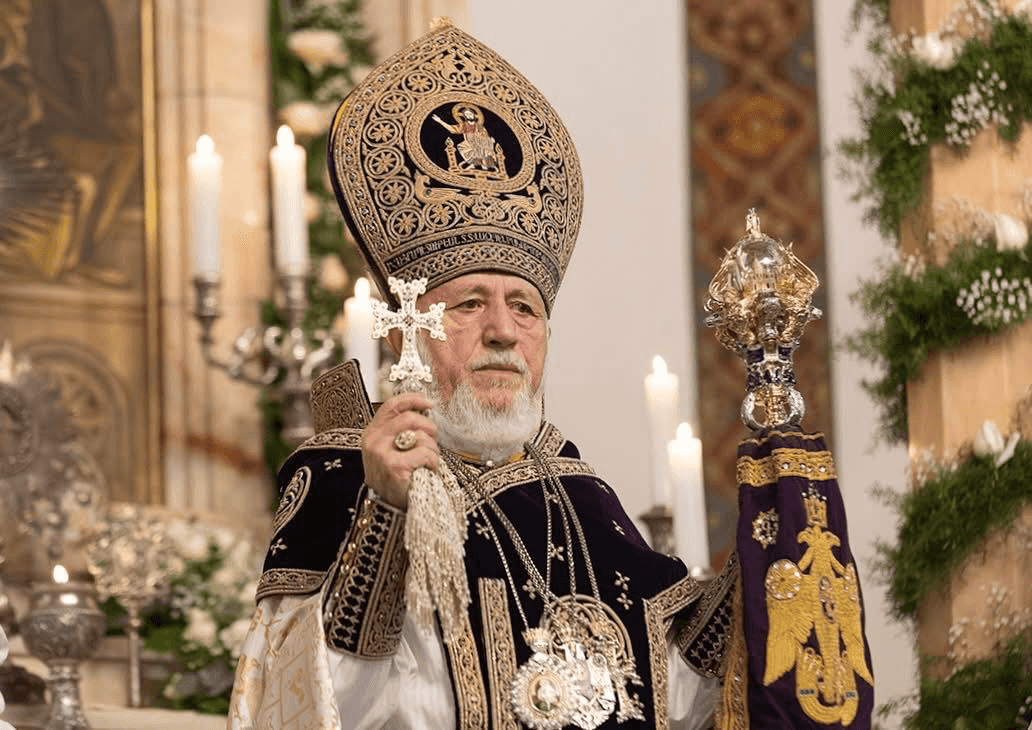
Russia has criticised Armenia for participating in a NATO summit in Washington, calling Armenia’s move to deepen ties with NATO and its member states ‘imprudent’.
Russian Deputy Foreign Minister Mikhail Galuzin said on Thursday that Moscow ‘deeply regrets’ Armenia’s participation in the 9–11 July NATO summit in Washington DC.
Galuzin additionally criticised Yerevan for choosing to increase cooperation with NATO and its member states, ‘especially in terms of implementing NATO standards, purchasing weapons, or conducting joint combat training activities’.
‘By deepening cooperation at such a pace with those whose goal is the “strategic defeat” of Russia, Yerevan with its own hands risks seriously destabilising the situation in the South Caucasus, to the detriment of its own security,’ said Galuzin, adding that knowledgeable specialists and politicians in Armenia understood the possible costs of such ‘imprudent steps’.
Russia’s deputy foreign minister also noted that Armenia remained a member of the CSTO and party to numerous bilateral military agreements.
He also referred to Russian Deputy Prime Minister Alexei Overchuk’s recent warning to Armenia that membership of the Eurasian Economic Union and the European Union were ‘incompatible’, noting that Armenia’s political orientation was increasingly towards the West.
‘The benefits that a country receives from proximity to Russia must also be perceived as the price we pay for our security and strategic depth,’ said Overchuk, warning that the entry of ‘extra-regional players’ to the Caucasus would have ‘consequences’.
Galuzin called Yerevan’s move an ‘unrealistic attempt to “sit on two chairs” ’.
On the sidelines of the summit, the US facilitated a meeting between Azerbaijan and Armenia’s foreign ministers, Jeyhun Bayramov and Ararat Mirzoyan, where they discussed ‘the progress made toward a durable and dignified peace agreement’, with Blinken reportedly stating that Armenia and Azerbaijan were ‘very close to reaching a final agreement’.
A ‘threat’ of a permanent EU mission
In another interview on Friday, Galuzin criticised the EU mission in Armenia, noting Russia’s ‘negative assessment’ of their activity, and suggesting that they had not seen ‘any tangible results’ of their work.
‘We are also concerned that with Yerevan’s approval, the mission is not only expanding, but is threatening to transform from temporary to permanent,’ added Galuzin. He also noted that Canadian representatives had joined the mission in April, ‘which, de facto, means the creeping penetration of NATO into the South Caucasus’.
Galuzin went on to suggest that the EU was attempting to gain a foothold in the region ‘to the detriment of the interests of traditional partners and neighbours of the South Caucasus states — Russia, Iran, Turkey’.
On Friday, Armenia’s deputy parliamentary speaker Hakob Arshakyan briefly commented on Russia’s comments.
‘All issues related to Armenia and the security system of Armenia are resolved by the decisions of the Armenian authorities. And I think that the decisions made are based on Armenia’s security interests,’ said Arshakyan.
He also noted that there were ongoing issues in Armenia’s relationship with Russia, including unresolved questions relating to the CSTO’s activity, Armenia’s security environment, and failures to implement agreements.









